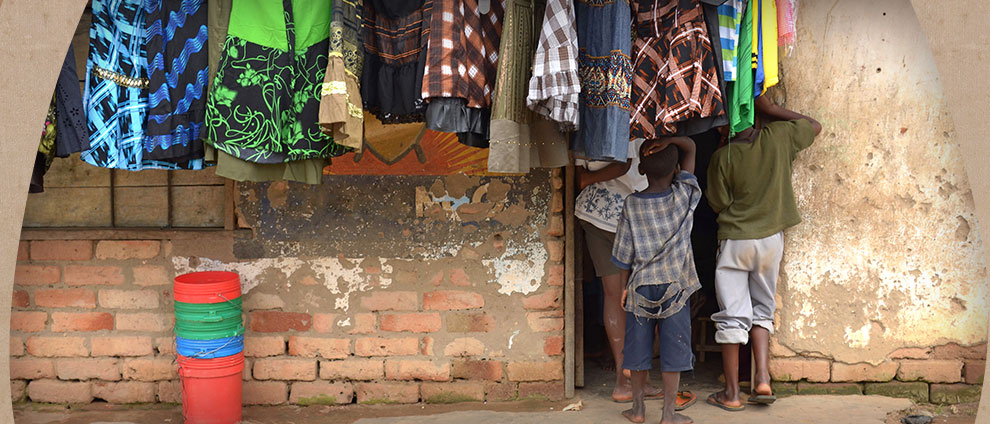
Those of us living in countries like Australia and the UK often know things that we don't really realise we know. We know almost from infancy that washing our hands after using the toilet prevents diarrhoea. We know that sneezing into our elbows helps to minimise the spread of colds and flus. We know that fever needs to be treated with certain medicines and not others. And we know that we can go, at very low cost, to a quality doctor who will diagnose and treat us appropriately. We trust and rely on the health knowledge we receive as children. We trust and rely on our health system. And, except in rare circumstances, that trust and reliance is well placed and rewarded with excellent outcomes in diagnosis, treatment, care and recovery, leaving us feeling confident and cared for.
And we mostly take this for granted. But what if we didn't have this basic knowledge? What if there wasn't a trustworthy or affordable health system? Instead of confident and cared for, would we feel vulnerable and insecure?
I was recently in Uganda to visit MH's work, complete a to do list as long as my arm, and bring back stories to share with our supporters. While I was extremely impressed by every aspect of Maranatha Health Uganda, what most stood out to me was the Community Health Education Program. Known as Abahabuzi B’ebyamagara (ABs for short), the Village Health Advisors program is all about increasing the health knowledge of village families and communities.
MH has known for a long time that providing a health service - no matter how good - can only go so far: we need to help people to stop getting sick in the first place. And that's where education, advocacy and support at the village level comes in. Participating villages vote to elect a number of ABs who then work with the MH Community Team to learn about a different health issue each month, such as malaria prevention, malaria treatment, diarrhoea prevention, etc. The ABs then implement changes in their own households and work with 10-15 other households to help them do the same. This peer-to-peer process of education and change means that people are engaged in their own development, and there is a flow on effect as more and more people adopt healthier behaviours and sickness is reduced. Local people become empowered and in turn become change agents in their communities.
On my final day in Uganda I squeezed into MHU's trusty ute with the Community Team and bumped along dirt roads for a couple of hours before arriving at a mountainous village - the site of MHU's most recent community program.
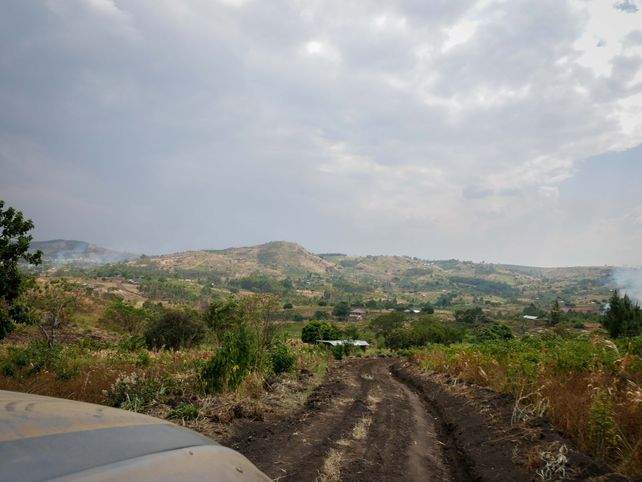
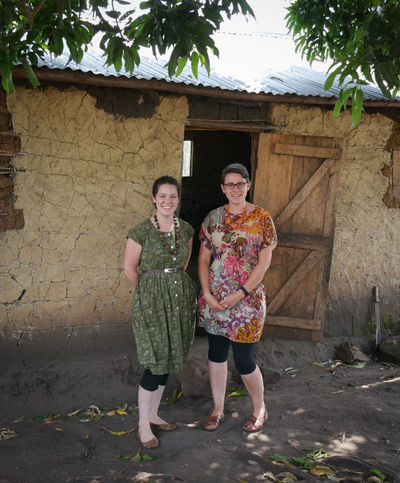
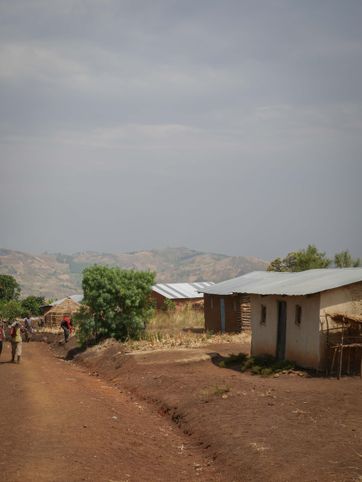
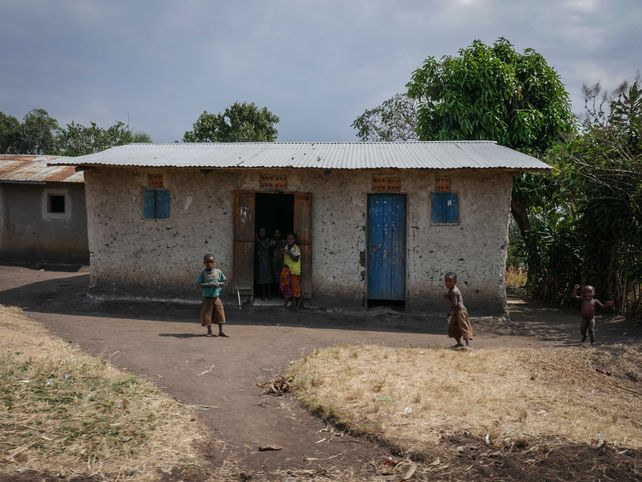
Beneath a tree on the top of a hill with incredible panoramic views, the newest bunch of ABs were gathered to share what they had done so far and to participate in their first training session. As I listened (via interpreter) to each AB share the findings from their household surveys (how many incidences of malaria, how many with access to latrines, etc), and outline the latest health concerns in the village, I was struck by an incredible sense of vulnerability. While not overly remote, this village is still 2 hours away from a major centre, the road is hazardous in wet weather, it has no reliable water source, very limited phone coverage, and something that can barely be called a clinic (staffed only occasionally by a nurse). In addition to their usual health problems, the village had recently run out of water and was experiencing a small outbreak of a disease they hadn't seen before. They were struggling to know where to turn for help.
I've experienced a lot in developing countries over the years, and am no longer so easily moved, but this moment brought me to tears. I can not imagine having someone I know contract a disease and having nowhere to turn for help. I can't imagine watching my child fall ill and not having the ability to call a health line or go to a health centre that I know will be able to help. I can’t imagine never having had a reliable or trustworthy health system and so always having a sense of insecurity and vulnerability about what might befall someone I love. The issues of poverty and underdevelopment with which I deal every day were brought into sharp relief in the faces and stories of these dedicated people before me.
As I discreetly wiped my eyes, I watched with awe the compassion and grace of the Community Team as they responded to the concerns, offered advice, rang MH clinical staff for support, and provided a lifeline for the community.
And I watched with joy the ABs becoming engrossed in the training, engaging with ideas and the complexities and nuances of the issues, offering their perspectives and unique insights, and working together to come up with something that was right for their particular context. I saw their pleasure and appreciation for the work they were part of, and the support and resources they could now offer to their fellow community members. And I saw the thankfulness at having someone to call on, someone to advocate with them, someone to help them tackle the problems that were too big to tackle alone.
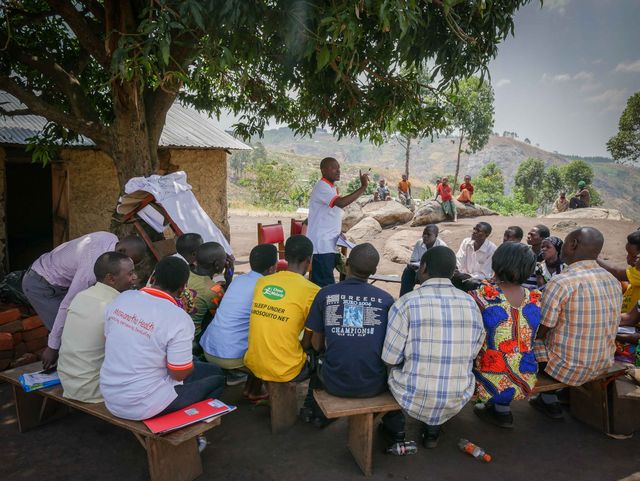
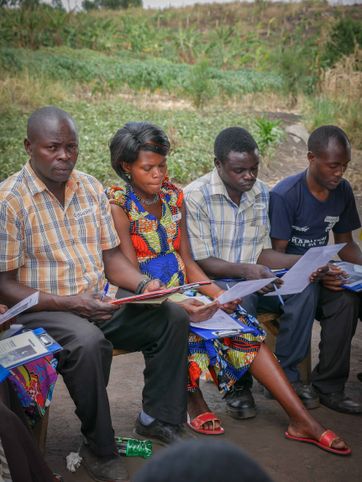
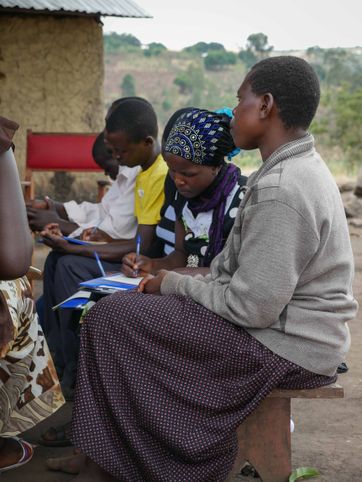
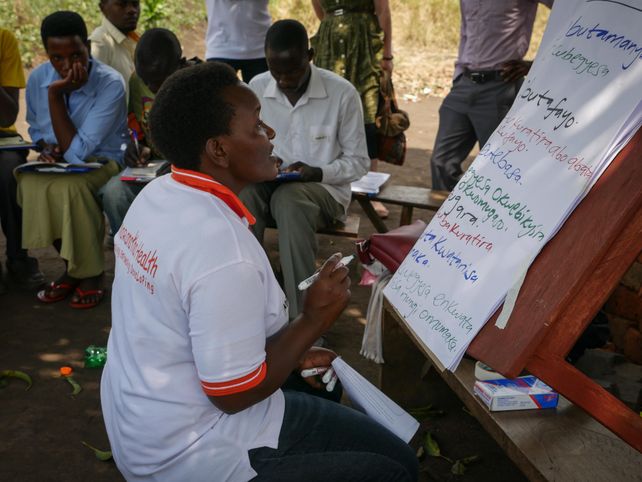
I really love this program. I love the relational way is starts and the organic way it grows. I love the ownership and commitment of the ABs, and their passion to make their community better. And I love that this program gives villagers greater health knowledge so they can have confidence in their ability to make good health decisions. To have kids growing up knowing how to prevent malaria, diarrhoea, water-borne diseases and more is going to go a long way to changing health outcomes in this corner of Uganda. And as the Community Team expands its work into new villages this year, I look forward to seeing a small revolution taking place!
As to having confidence in a high quality health system to support this local knowledge, well that's another story that's probably a few more years in the making (and where the Capacity Building program comes in).
- Liesl Shipard, Maranatha Health Program Director